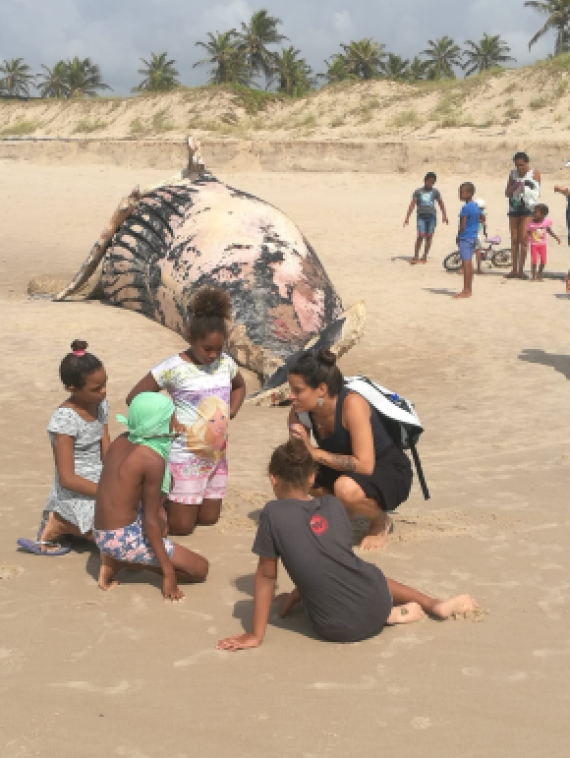On the beach of Siribinha, a researcher educates children about whales and nature conservation. © David Ludwig
Wageningen researchers carry out many research projects around the world to improve food security, environment and biodiversity. However, their interventions do not always connect to the local situation. The reason is that the academic knowledge and values are not connected to indigenous and other local world views, says philosopher David Ludwig. ‘It is difficult for western ecologists to collaborate with local people who have very different worldviews and may use forest spirits in their decision-making process.’ Ludwig, part of the research group Knowledge, Technology and Innovation, examines these cultural differences and looks for a framework in which academic and local communities can learn from each other.
1.5 million
Ludwig will have the means to hire several researchers in the coming years. Last week, he received an ERC grant of 1.5 million euros from the European Research Council, and a few months earlier, he was awarded a VIDI grant from NWO worth 800.000 euro. Ethno-biological and transdisciplinary research is popular. ‘These are just buzz words’, Ludwig says with a smile. ‘We used to call it participatory research or multi-stakeholder processes. The key aim is that we need to understand how to find answers together in a global context.’
Fishing community
At the moment, Ludwig is studying the collaboration between a fishing community and a team of Brazilian ecologists, sociologists and policy researchers. Traditional fishing in the mangrove forests is under threat because the mangrove forests are decreasing and tourism is becoming an increasing threat to the environment. How can the local community maintain sustainable fishing in the nature reserves?
Negotiations
‘We try to help the fishermen in their negotiations with the local authorities’, says Ludwig, ‘because we need their knowledge of sustainable fishing techniques to find a solution.’ In this process, the academics and fishermen encounter problems and miscommunications. ‘We see tensions and power issues.’ These problems often stem from expectations, says the philosopher. ‘Exact scientists are often too optimistic. They think: “we have a problem, so we discuss the issue and find a solution”. By contrast, social scientists are often too pessimistic. They point at power issues and cultural differences and see nothing but a clash of cultures.’
Different worldviews
‘In practice, we don’t experience such clearly demarked situations. The negotiations are complicated, there are tensions and sometimes, they find an agreement. In this process, it is important that the participants reflect on their own assumptions and worldview, try to understand the values of the other participants and come to grips with their perspectives’, Ludwig elaborates. ‘Good intentions are not enough. In these projects, we have to deal with fish, nature, conflicts of interest and worldviews. This makes “finding answers together” a complex matter.’

